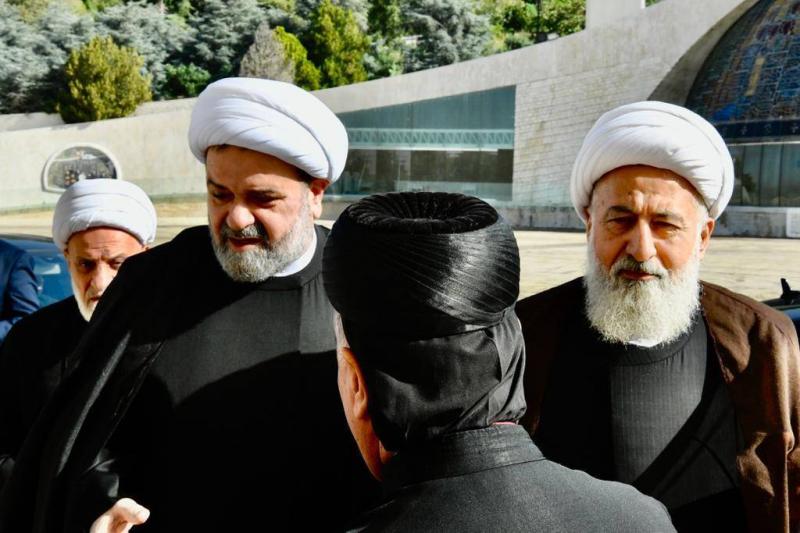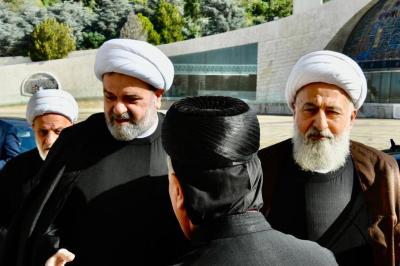The reprehensible campaign against the figure and position of Maronite Patriarch Bechara al-Rai was not a trivial or simple matter. Shiite religious figures, who were supposed to be part of the "Islamic-Christian dialogue" process, participated in this campaign aimed at breaking the will of Bkerke and silencing the voices opposed to the exploitation of border villages and their use as a launching point for military operations in the south, which led to the displacement of their inhabitants, destruction of their homes, and disruption of life there. However, this campaign collided with the historical and present strength of Bkerke, forcing its supporters to disavow it and reopen the door for dialogue through the Higher Shiite Islamic Council as a means to resume communication with "Hezbollah."
The campaign against Patriarch al-Rai nearly undermined the foundations of communication between Shiite and Christian authorities, prompting President Nabih Berri to intervene personally to stop what he termed "unacceptable slander campaigns" against Patriarch al-Rai regarding his sincere call to support displaced Lebanese. He added in a statement, "His Eminence’s call to support the displaced expresses a national, unifying message. While I commend his call in this area, we condemn the campaign against him, which stems from a mere misunderstanding."
According to information, the initiative of the Deputy Head of the Higher Shiite Islamic Council, Sheikh Ali Khateeb, to meet with Patriarch al-Rai was encouraged by Berri in an effort to contain the situation that had resurfaced with Christian-Shiite tensions, threatening political repercussions that could illustrate the Shiite obstruction of high Christian positions in the state.
The aim of Khateeb’s visit, as noted by "Nidaa al-Watan," was twofold:
1. To disavow responsibility for the shelling coming from Christian villages that provokes Israeli retaliation against these villages, reaffirming the rejection of war and also disavowing the campaign against Patriarch al-Rai from Shiite circles on social media.
2. To propose the idea of holding a spiritual summit for leaders of Islamic and Christian sects. However, this proposal faces significant difficulties as the actual Shiite decision-making lies with "Hezbollah," and Christian and Lebanese public opinion considers that Berri is the one obstructing the Parliament.
Undoubtedly, Patriarch al-Rai’s elevation above the insults he faced facilitated the prevention of sedition and paved the way for a deeper inquiry into the crisis of the border villages that can no longer be ignored due to the Israeli targeting of these areas, which have also suffered internal Lebanese shelling. This compelled Samir Geagea, the head of the "Lebanese Forces," to openly and directly address these risks and the necessity to halt what is happening, as it has resulted in destruction and displacement that Lebanon cannot bear.
Patriarch al-Rai did not delay in extending condolences to MP Muhammad Ra'd for the martyrdom of his son Abbas in an Israeli airstrike, which opened the door for communication channels between "Hezbollah" and Bkerke to request a visit for a leadership delegation to thank the Patriarch for his condolences and to attempt to contain the crisis arising from the campaign against al-Rai, in addition to the fundamental problem of obstructing the election of a president and hindering the filling of the vacancy in military leadership, along with all that branches from the obstruction of political life.
To calm the atmosphere, "Hezbollah" instructed those who had launched attacks against Patriarch al-Rai to withdraw, including some Sunni clerics. It is expected that "the party" will urge all its allies to ease the targeting of Bkerke and begin an effort to inundate the meeting with the Patriarch with names and details about military leadership to embarrass him instead of allowing matters to flow legally and constitutionally, as represented by his current stances and those of the opposition.
"Hezbollah" will be concerned, through communication with Bkerke, with overcoming the failure of its policy that relies on embroiling Lebanon in conflicts, while the Patriarch insists on Lebanon's neutrality. The events in the south have demonstrated the soundness of the Patriarch's proposition while the party places the country on the brink of war.
The crisis resulting from the violation of the border villages in the south has escalated, and this issue constitutes a priority for Bkerke that necessitated the call for aid for the residents through church donations (such as the case of the trays). No authority can ignore the suffering of people in border areas anymore. Meanwhile, a puzzling question remains present: how can the party escalate against Patriarch al-Rai politically and then speak of dialogue, and what chances are there for this dialogue?




